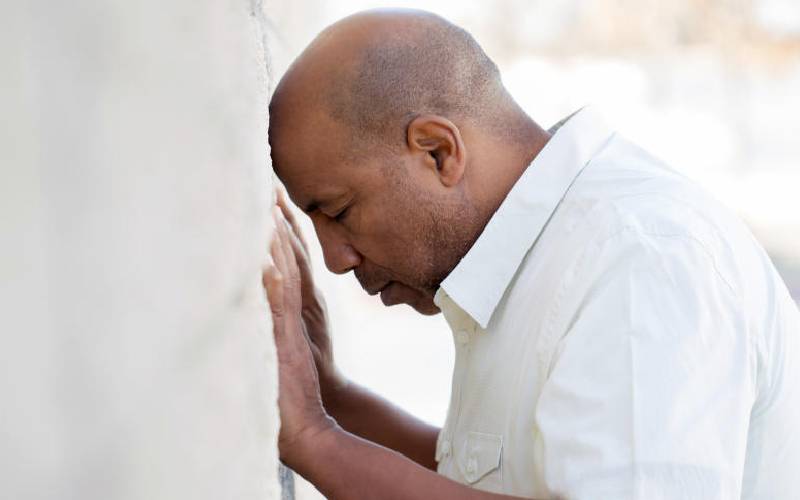×
The Standard e-Paper
Stay Informed, Even Offline

Men facing mental breakdown experience psychological, emotional as well as behavioural changes. [Courtesy]
Traditionally, men have been looked upon as the providers and heads of households. This has seen many men left to shoulder financial burdens even when they do not have an income and are at their breaking points mentally.